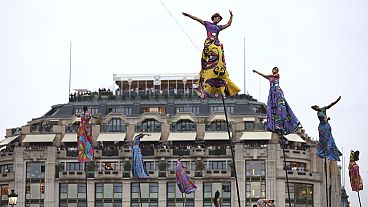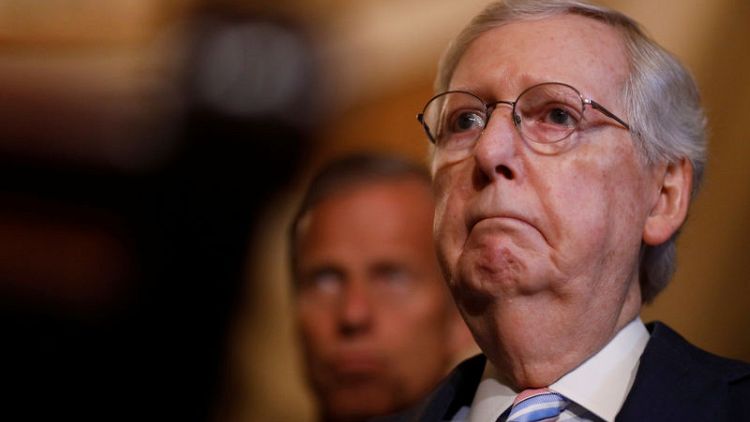By Patricia Zengerle
WASHINGTON (Reuters) - The U.S. Senate will vote within days on whether to override President Donald Trump's vetoes of legislation to block the sale of precision-guided munitions to Saudi Arabia and the United Arab Emirates, Majority Leader Mitch McConnell said on Wednesday.
McConnell said the Senate would hold the vote before Aug. 2, when lawmakers leave Washington for a five-week-long recess.
The three resolutions of disapproval are not expected to garner the two-thirds majority in the 100-member Senate needed to override the vetoes, however. Only a handful of Trump's fellow Republicans, who hold 53 seats in the Senate, backed the resolutions when they passed last month.
The measures would block the sale of Raytheon Co precision-guided munitions and related equipment.
The Democratic-controlled House of Representatives backed the resolutions last week, largely along party lines, sending them to the White House for Trump's promised veto.
The Senate passed them - and 19 others that the House has yet to consider - a month earlier.
Supporters of the resolutions are unhappy with the Trump administration's decision in May to push ahead with more than $8 billion in military sales, sidestepping the congressional review process by declaring an "emergency" over tensions with Iran.
Lawmakers want Washington to push Riyadh to improve its human rights record and do more to avoid civilian casualties in the four-year-long war in Yemen, where the Saudis and UAE are leading an air campaign against Iran-backed Houthi rebels.
Frustration grew after the murder at a Saudi consulate in Turkey last year of Saudi journalist and Washington Post columnist Jamal Khashoggi, a U.S. resident.
Trump wants to retain close ties to Riyadh, which he considers an important partner in the Middle East and counterweight to the influence of Iran. Trump also views foreign military sales as a way to generate U.S. jobs.
In his veto message, Trump said the resolutions would weaken U.S. competitiveness and damage important relationships.
(Reporting by Patricia Zengerle; Editing by Sonya Hepinstall)












